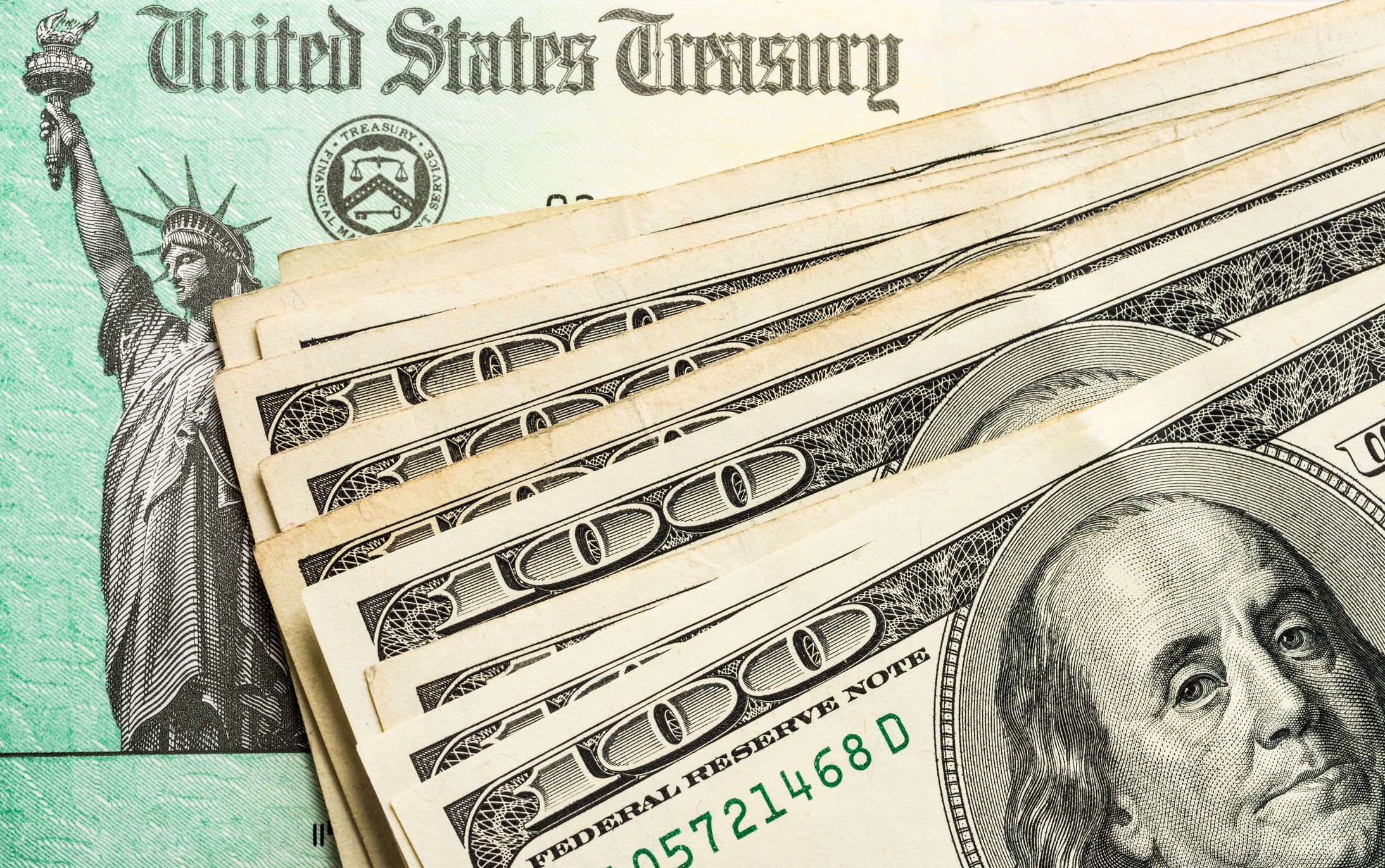Taxes When Using the Back Door Into a Roth IRA
The new tax law still allows high earners to contribute indirectly to a Roth IRA. But the tax bill for doing so will depend partly on whether they have other money in a traditional IRA.


Profit and prosper with the best of Kiplinger's advice on investing, taxes, retirement, personal finance and much more. Delivered daily. Enter your email in the box and click Sign Me Up.
You are now subscribed
Your newsletter sign-up was successful
Want to add more newsletters?
Question: I read your column How to Undo a Roth Contribution If Your Income is Too High. But if your income is too high, can you -- under the new tax law -- still make backdoor Roth contributions by converting money from a traditional IRA to a Roth? If so, would this be a tax-free conversion if you immediately transfer your traditional IRA contribution to a Roth?
Answer: The new tax law didn't change your ability to make a "backdoor" Roth IRA contribution if your income is too high to contribute to a Roth directly. But the conversion will only be tax-free if you don't have any other money in a traditional IRA.
You can only contribute to a Roth IRA in 2018 if your modified adjusted gross income is less than $135,000 if you're single or $199,000 if married filing jointly. (The contribution amount starts to phase out if you earn more than $120,000 if you're single or $189,000 if married filing jointly.) But there's no income limit for converting money from a traditional IRA to a Roth. Some people who earn too much to contribute directly to a Roth make a nondeductible contribution to a traditional IRA, then quickly roll the money over to a Roth. This is called a backdoor Roth contribution. If the nondeductible contribution is the only money you have in a traditional IRA, then you won't owe taxes on the conversion, except on any gains that occurred between the time you made the contribution and the time you converted to the Roth.
From just $107.88 $24.99 for Kiplinger Personal Finance
Become a smarter, better informed investor. Subscribe from just $107.88 $24.99, plus get up to 4 Special Issues

Sign up for Kiplinger’s Free Newsletters
Profit and prosper with the best of expert advice on investing, taxes, retirement, personal finance and more - straight to your e-mail.
Profit and prosper with the best of expert advice - straight to your e-mail.
But if you had any other money in a traditional IRA -- whether from tax-deductible contributions or rollovers from a 401(k) -- you may have to pay more in taxes. The tax-free portion of the conversion is based on the ratio of your nondeductible contributions to the total balance in all of your traditional IRAs. If you have $50,000 in traditional IRAs and you make $5,000 in nondeductible contributions, then 10% of your conversion will be tax-free and the remaining 90% will be taxable. See How to Calculate Tax-Free and Taxable IRA Withdrawals for more about figuring the tax consequences.
For more information about the procedure for making a backdoor Roth contribution, see How High Earners Can Set Up a Roth IRA.
Profit and prosper with the best of Kiplinger's advice on investing, taxes, retirement, personal finance and much more. Delivered daily. Enter your email in the box and click Sign Me Up.

As the "Ask Kim" columnist for Kiplinger's Personal Finance, Lankford receives hundreds of personal finance questions from readers every month. She is the author of Rescue Your Financial Life (McGraw-Hill, 2003), The Insurance Maze: How You Can Save Money on Insurance -- and Still Get the Coverage You Need (Kaplan, 2006), Kiplinger's Ask Kim for Money Smart Solutions (Kaplan, 2007) and The Kiplinger/BBB Personal Finance Guide for Military Families. She is frequently featured as a financial expert on television and radio, including NBC's Today Show, CNN, CNBC and National Public Radio.
-
 Americans, Even With Higher Incomes, Are Feeling the Squeeze
Americans, Even With Higher Incomes, Are Feeling the SqueezeA 50-year mortgage probably isn’t the answer, but there are other ways to alleviate the continuing sting of high prices
-
 Hiding the Truth From Your Financial Adviser Can Cost You
Hiding the Truth From Your Financial Adviser Can Cost YouHiding assets or debt from a financial adviser damages the relationship as well as your finances. If you're not being fully transparent, it's time to ask why.
-
 How to Manage a Disagreement With Your Financial Adviser
How to Manage a Disagreement With Your Financial AdviserKnowing how to deal with a disagreement can improve both your finances and your relationship with your planner.
-
 Standard Deduction 2026 Amounts Are Here
Standard Deduction 2026 Amounts Are HereTax Breaks What is the standard deduction for your filing status in 2026?
-
 3 Popular Tax Breaks Are Gone for Good in 2026
3 Popular Tax Breaks Are Gone for Good in 2026Tax Breaks Here's a list of federal tax deductions and credits that you can't claim in the 2026 tax year. High-income earners could also get hit by a "surprise" tax bill.
-
 Five Ways Trump’s 2025 Tax Bill Could Boost Your Tax Refund (or Shrink It)
Five Ways Trump’s 2025 Tax Bill Could Boost Your Tax Refund (or Shrink It)Tax Refunds The tax code is changing again, and if you’re filing for 2025, Trump’s ‘big beautiful’ bill could mean a bigger refund, a smaller one or something in between next year. Here are five ways the new law could impact your bottom line.
-
 New SALT Deduction Could Put Thousands Back in California Homeowners’ Pockets
New SALT Deduction Could Put Thousands Back in California Homeowners’ PocketsTax Breaks The federal state and local sales tax (SALT) deduction cap is higher this year, and could translate into bigger savings for Golden State homeowners.
-
 Key 2025 Tax Changes for Parents in Trump's Megabill
Key 2025 Tax Changes for Parents in Trump's MegabillTax Changes Are you a parent? The so-called ‘One Big Beautiful Bill’ (OBBB) impacts several key tax incentives that can affect your family this year and beyond.
-
 Elon Musk and Most Taxpayers Don't Like What's in Trump's 'Big Beautiful Bill'
Elon Musk and Most Taxpayers Don't Like What's in Trump's 'Big Beautiful Bill'Tax Policy President Trump is betting big on his newest tax cuts, signed into law on July 4. But not everyone is on board.
-
 'Unprecedented' Private School Voucher Tax Credit in Trump's Megabill
'Unprecedented' Private School Voucher Tax Credit in Trump's MegabillTax Credits The so-called ‘One Big Beautiful Bill’ is now law, and one provision calls for a major tax break for private school donors.
-
 2025 SALT Cap Could Hurt Top 'Hidden Home Cost'
2025 SALT Cap Could Hurt Top 'Hidden Home Cost'Tax Deductions The GOP tax bill could make hidden homeowner costs worse for you. Here’s how.